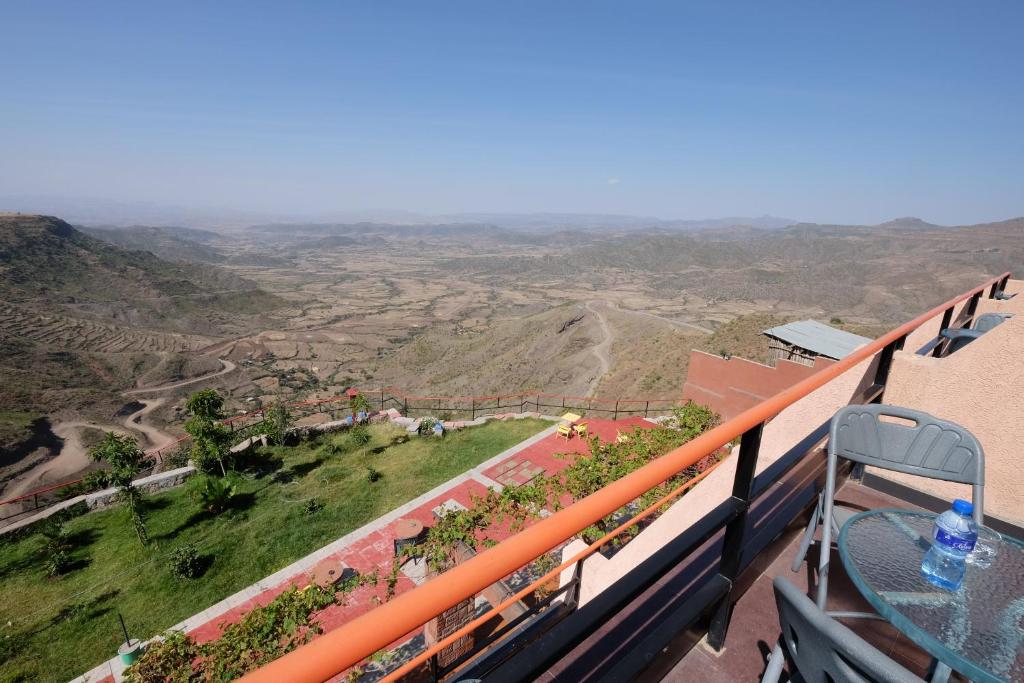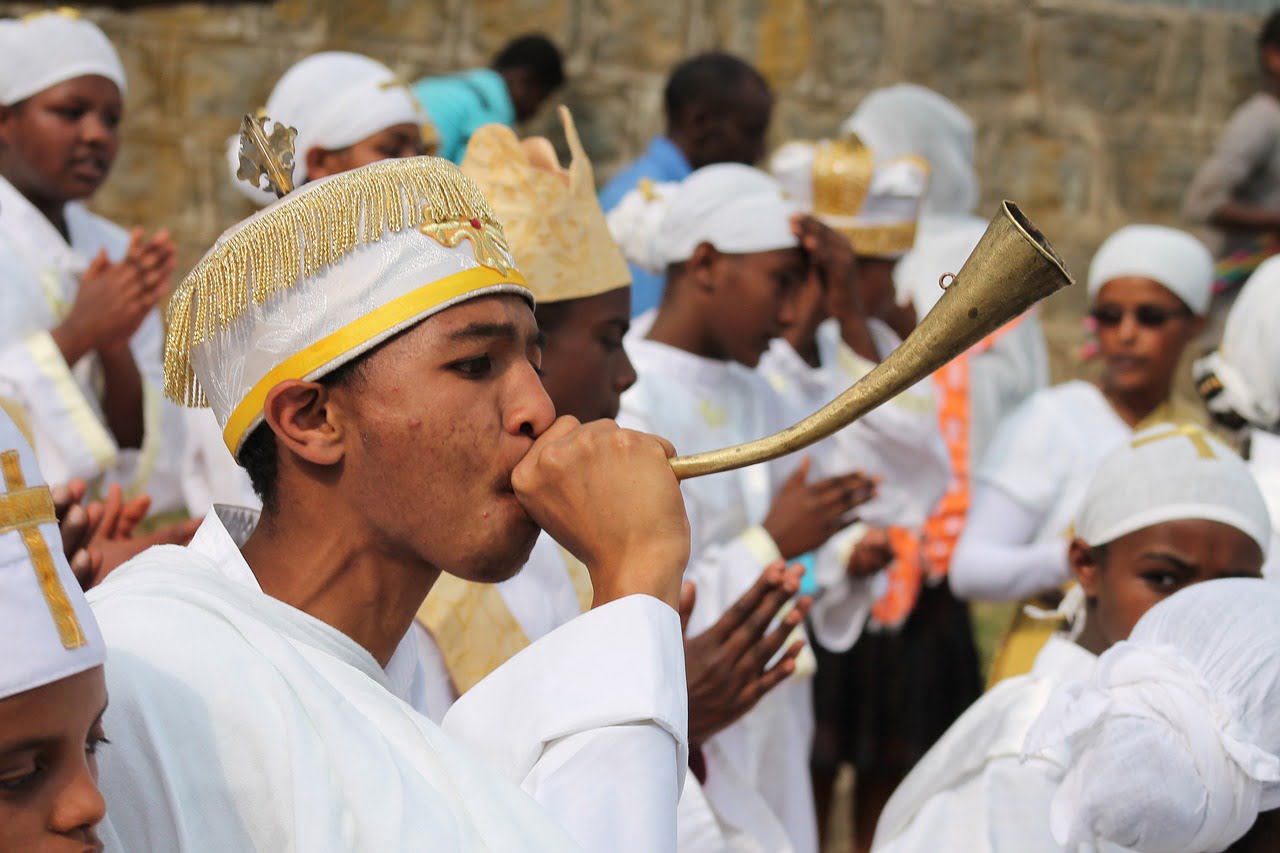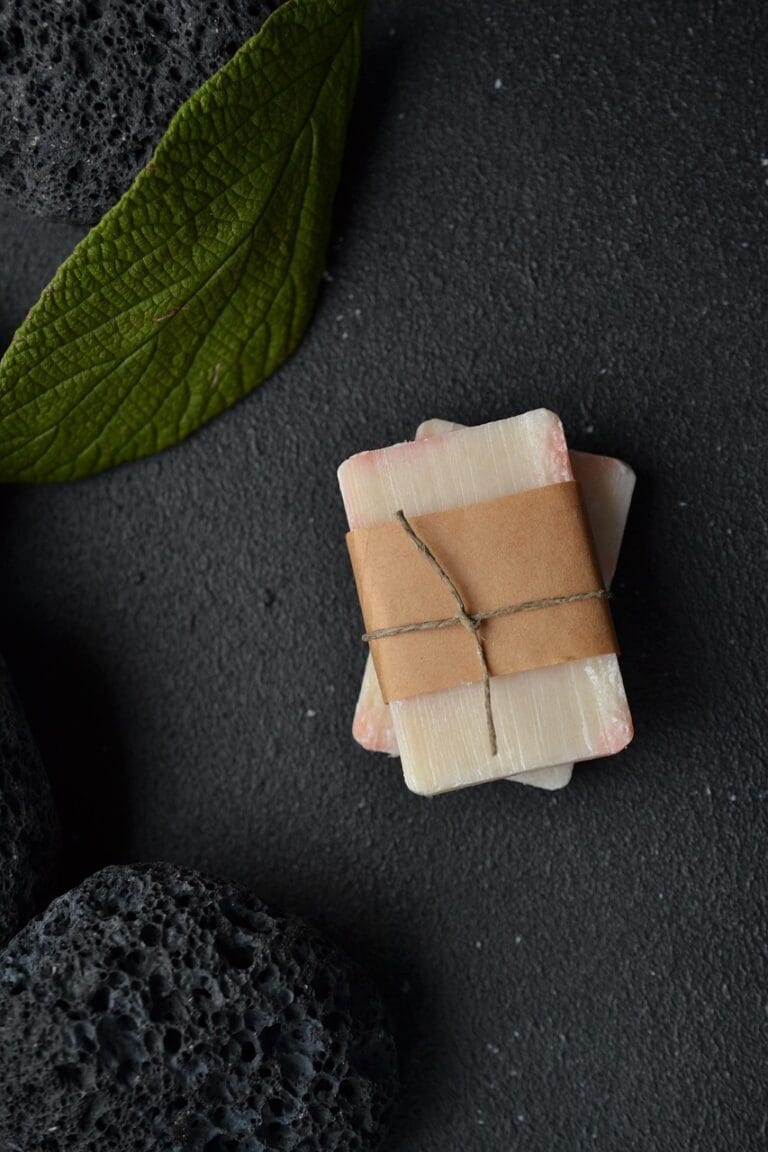Exploring the Depth of Ethiopian Culture
Ethiopia, often referred to as the Cradle of Humanity, boasts a cultural tapestry woven from over 80 distinct ethnic groups. Each group contributes its unique traditions, languages, and practices, creating a vibrant cultural mosaic that captivates anyone who ventures into its heart.
Cultural immersion in Ethiopia goes beyond sightseeing; it invites you to experience its rich history, lively festivals, and heartfelt stories shared by its people. The diverse customs, from rural ceremonies to urban celebrations, highlight the nation’s incredible heritage.
As you explore Ethiopia, you will discover a world where music, art, and spirituality intersect, revealing the soul of a nation that has remained resilient through the ages. Join us as we delve into Ethiopia’s cultural realms, offering a closer look at the traditions and connections that define this fascinating country.




Discover the Vibrant Essence of Ethiopian Culture: Traditional Dance and Enchanting Tours
The Mosaic of Ethnic Groups in Ethiopia
Ethiopia’s population is a vibrant tapestry of over 80 distinct ethnic groups, each embodying unique languages, customs, and cultural expressions. This remarkable diversity makes Ethiopia one of the most ethnically varied nations in the world, where cultural identity is not just a personal attribute but a way of life that strengthens community bonds.
A Rich Linguistic Landscape
One of the most striking features of Ethiopia’s ethnic diversity is its linguistic richness. The country is home to over 80 languages, with Amharic, Oromo, and Tigrinya being the most widely spoken. Each language carries its own nuances and philosophies, often reflected in local proverbs, storytelling traditions, and oral histories. For instance, the Oromo people have a vibrant oral tradition that includes poetry and songs expressing their connection to the land and their struggles throughout history.
Festivals and Traditions
Cultural identity in Ethiopia is accentuated through various festivals that are emblematic of each ethnic group’s history and beliefs. For example, the Enkutatash (Ethiopian New Year) is celebrated predominantly by the Amhara people, marked by festivities that include music, dance, and elaborate feasting. The Timkat festival, dedicated to the Epiphany, showcases the Ethiopian Orthodox Church’s rich traditions and is celebrated fervently across various communities. Each festival offers a glimpse into the lifestyles and values of Ethiopia’s diverse ethnicities, drawing locals and visitors alike into a shared celebration of life and faith.
Community Life and Social Structures
The strength of community life among Ethiopia’s ethnic groups cannot be overstated. Traditional values such as respect for elders, kinship ties, and communal responsibilities play a critical role in daily life. Groups like the Konso are well-regarded for their terraced farming practices and strong social organization, which emphasizes cooperation and mutual support. Elders often mediate disputes and guide community decisions, ensuring that cultural traditions are preserved while adapting to contemporary challenges.
Inter-ethnic Relations
Ethiopia’s ethnic groups often interact beyond their individual identities, engaging in trade, intermarriages, and cultural exchanges that enrich the nation’s cultural fabric. The political landscape has seen varying degrees of tension, yet many communities emphasize peacebuilding efforts. Programs aimed at fostering intercultural dialogue display a promising path toward unity amid diversity.
As we continue our exploration of Ethiopia’s culture, the next section will unveil the vibrant festivals and celebrations that further illuminate the beauty of this nation’s rich heritage.
Festivals and Celebrations: A Cultural Showcase
Ethiopian festivals are vibrant expressions of the country’s culture and traditions, celebrated with intense fervor and shared joy. Among the most significant of these is Timkat, a religious festival commemorating the baptism of Jesus Christ. Observed on January 19 (or 20 in leap years), Timkat’s historical significance is as profound as its colorful displays. The festival sees participants don traditional attire, carry replica Tabots (ark-like structures) to churches, and immerse themselves in the spiritual atmosphere of prayer and communal singing. Streets fill with jubilant crowds, creating a kaleidoscope of colors that embody the spirit of unity and devotion.
Meskel: The Finding of the True Cross
Another essential celebration is Meskel, which translates to “cross” in Ge’ez, marking the discovery of the True Cross by Saint Helena. Celebrated on September 27, this festival features the lighting of a massive bonfire known as the Demera, symbolizing the triumph of light over darkness. Locals gather in large numbers, dressed in white shamma (traditional clothing), singing hymns and dancing around the fire, reinforcing community bonds. As the flames rise, people share stories and legends surrounding the cross, blending history with spirituality, and showcasing the grandeur of Ethiopian Christian traditions.
Community Involvement and Preparation
What makes these festivals particularly special is the level of communal involvement that precedes their celebration. Local preparations can last weeks, with communities coming together to decorate church grounds, prepare traditional dishes, and rehearse songs and dances. This collective effort fosters a deep sense of belonging, as everyone—from the youngest child to the oldest elder—plays a role in the festivities. The palpable excitement during these preparations adds an element of anticipation, making the days leading up to the events a festival in their own right.
Cultural Significance Beyond Religion
These festivals are not solely religious; they also provide a unique opportunity for social bonding, cultural exchange, and the celebration of ethnic identity. During Timkat and Meskel, people from various ethnic backgrounds come together, transcending social divisions. Interethnic interactions during these events offer a glimpse into the diverse fabric of Ethiopian society, showcasing music, dance, and culinary delights from different regions.
As you immerse yourself in the vivid celebrations of Ethiopia, you will not only witness the devotion of its people but also experience the harmony and unity that threads through this beautiful nation. The upcoming section will delve into the rich culinary traditions, inviting you to savor the flavors that define Ethiopian culture.
Culinary Traditions: A Taste of Ethiopia
Ethiopian cuisine is renowned for its intricate flavors and communal eating styles, reflecting the essence of its diverse cultures. Each dish tells a story, often linked to the traditions and customs of the nation’s many ethnic groups. In Ethiopia, food is not just a means to nourish the body; it is an act of community, culture, and celebration.
An Array of Flavors
At the heart of Ethiopian dining is injera, a spongy flatbread made from teff flour, which serves as both a plate and utensil. This versatile staple is typically topped with an array of wot, or stews, featuring ingredients such as lentils, vegetables, and meats, each spiced with the iconic berbere blend—a robust mixture of chili peppers, garlic, ginger, and other spices. Traditional meals often include:
The Communal Dining Experience
Ethiopian meals are traditionally served on a large platter, where family and friends gather to share from a central dish. Diners use their fingers to tear off pieces of injera and scoop up the stews—a practice that emphasizes community and connection. This form of eating encourages interaction and strengthens bonds, reflecting the deep-rooted values of hospitality integral to Ethiopian culture.
The Cultural Significance of Food
Food in Ethiopia is infused with cultural significance. Meal preparation is often a communal affair, with families and neighbors coming together to cook for festivals, holidays, or even casual gatherings. The time spent cooking and eating together fosters relationships and reinforces communal ties, promoting a sense of unity within the community.
The Coffee Ceremony: An Iconic Tradition
No discussion of Ethiopian cuisine would be complete without mentioning the ritual of the coffee ceremony. This elaborate process begins with roasting green coffee beans on a pan over an open flame, filling the air with an intoxicating aroma. The roasted beans are then ground and brewed in a special pot called a jebena. Once prepared, the coffee is served in small cups, often accompanied by popcorn or local snacks. The ceremony is a hallmark of Ethiopian hospitality, symbolizing respect and friendship, and is an integral aspect of social interaction.
As you savor the rich flavors and communal spirit of Ethiopian cuisine, you will gain a deeper appreciation for the cultural practices that underscore its culinary traditions. The next section will explore how art and music further enrich the tapestry of Ethiopian culture, connecting people across generations.
Art and Music: The Soul of Ethiopia
Ethiopia boasts a vibrant artistic and musical heritage that intricately reflects its complex history and cultural values. From stunning visual art to soulful melodies, Ethiopian art and music transcend mere entertainment—they serve as powerful mediums for storytelling and cultural expression.
Traditional Art Forms
Ethiopian art is steeped in tradition, often characterized by religious themes. Church murals depict biblical scenes and saints, employing vivid colors and intricate designs that invite the viewer into a spiritual experience. The use of crosses in decorative arts, especially the ceremonial crosses crafted by skilled artisans in regions like Tigray, showcases the meticulous craftsmanship that has been passed down through generations.
The making of traditional handicrafts such as woven baskets and textiles is another area where art flourishes. The Shama blankets, beautifully woven in various patterns, are not only functional but also serve as cultural symbols deeply tied to the identity of the Ethiopian people. Artists, often supported by community centers, continue to develop these traditional crafts, fusing age-old techniques with modern innovation.
The Musical Heritage
Ethiopian music is as diverse as its population, encompassing various genres rooted in regional traditions. Ethio-jazz, a fusion of traditional Ethiopian scales and jazz, has gained international acclaim, thanks in part to pioneers like Mulatu Astatke. This genre showcases Ethiopia’s complex musical scales, such as the krar (a six-string lyre) and the masenqo (a one-string fiddle), which are significantly different from typical Western instruments.
Music plays an essential role in everyday life. Traditional songs often encapsulate stories, folklore, and social commentary, ensuring that history and lessons are passed down orally. For instance, the eskista, a traditional dance originating from the Amhara and Tigray regions, is often performed at celebrations and is characterized by intricate shoulder movements accompanied by rhythmic music.
The Power of Storytelling
Storytelling is integral to both Ethiopian art and music, serving as a tool for preserving cultural identity. Oral traditions are vibrantly alive; many communities still share legends and historical narratives through performance art. The poet, known as a “gizaw,” is revered for the ability to narrate tales that echo the history and values of the people. These performances often blend music and dance, making storytelling an engaging and communal experience.
Through artistic expressions, Ethiopians celebrate their rich identity while addressing contemporary issues. Pieces of art and music can reflect not only joys but also struggles, capturing the spirit of the people in times of hardship and prosperity alike.
As we delve deeper into Ethiopia’s rich artistic landscape, the upcoming section will shed light on the profound impact of religious diversity in shaping the nation’s cultural identity and everyday life.
Religious Diversity and Its Cultural Impact
Ethiopia’s rich tapestry of religious beliefs is a captivating aspect of its cultural landscape. With a population that includes a significant number of Christians, Muslims, and followers of indigenous beliefs, the country’s faith systems interweave to shape social customs, community events, and daily lives. This section explores how religion not only influences cultural practices but also fortifies the sense of identity among Ethiopians.
A Harmony of Faiths
In Ethiopia, Christianity and Islam are the two predominant faiths, with the Ethiopian Orthodox Tewahedo Church dominating the Christian landscape. It is one of the oldest Christian denominations in the world, tracing its roots back to the 4th century. In contrast, Islam has been present in Ethiopia since its inception, making it an integral part of the country’s heritage. This co-existence is often highlighted during significant religious festivities, where adherents from different faiths participate in shared community activities.
Influence on Community Life
Religion plays a vital role in shaping community dynamics in Ethiopia. Weekly services are central to both Christian and Muslim communities, guiding members’ schedules and social interactions. These gatherings are not just spiritual in nature; they are also social events where people connect, share, and support one another.
Religious places often serve as vital hubs for community development. Many mosques and churches actively engage in charitable activities, including education programs and feeding initiatives, which strengthen community bonds and provide vital support to the less fortunate.
Social Norms and Values
Ethiopian religious teachings profoundly influence social norms. For instance, the values of generosity, hospitality, and respect for elders are emphasized in both Christianity and Islam. These principles form the bedrock of Ethiopian society, permeating the cultural ethos and guiding interpersonal relationships.
Moreover, religious observances encourage a collective effort toward mutual respect and understanding. In villages and urban settings alike, people often gather to resolve disputes with a focus on maintaining harmony, drawing from teachings inherent in their respective faiths.
The Persistence of Indigenous Beliefs
Beyond the major religions, indigenous belief systems persist, enriching the cultural practices and traditions in various regions. These beliefs often incorporate the worship of nature and ancestral spirits, adding depth to the religious landscape. Festivals celebrating agricultural cycles reflect these beliefs, highlighting the profound connection Ethiopians have with their land and heritage.
As Ethiopia’s religious landscape continues to evolve, the interplay of these diverse beliefs plays a crucial role in unifying the people while celebrating their individuality. The confluence of faith and culture offers a unique insight into the spirit of Ethiopia, setting the stage for a deeper appreciation of the vibrant experience awaiting those who visit this ancient land.
With an understanding of how religious diversity shapes Ethiopian culture, we now move to a vital conclusion that encapsulates the beauty of immersing oneself in this unique experience.
Embracing the Ethiopian Experience
Cultural immersion in Ethiopia offers an unparalleled journey through the country’s vibrant mosaic of ethnic groups, festivals, culinary delights, artistic expressions, and religious diversity. By engaging with these facets of Ethiopian life, travelers not only broaden their horizons but also forge deeper connections with the people and their heritage. Each experience enriches understanding, allowing for growth both personally and culturally.
As you consider your own journey, remember that Ethiopia’s rich tapestry is not just to be observed but to be felt and appreciated. Embrace the Ethiopian experience, and let it inspire your perspective towards unity, diversity, and the beauty of human expression. Wherever your path leads, carry a piece of Ethiopia with you and share its stories with others.









I recently visited Ethiopia and wow, the culture is just incredible! I loved exploring the markets and tasting all the amazing food. The coffee ceremony was a highlight for me. Did anyone stay at the Panoramic View Hotel in Lalibela? I heard it has stunning views!
Absolutely, Lisa! The coffee ceremony is a must-see. It’s such a warm experience! And yes, the Panoramic View is known for its gorgeous views.
@Lisa Thompson, I stayed there last year and it was breathtaking! Make sure to check out the sunset from the terrace, you won’t regret it! 🌅
This article has me ready to book my flight! 🌍 Can’t wait to dive into the food scene, especially injera! Has anyone experienced the culinary traditions first-hand? What about the hotels? I’m eyeing the Hotel Miracle but not sure. 🤔
Absolutely, Rachel! Ethiopian food is a must-try! And Hotel Miracle is highly recommended among travelers for its comfort and service.
@Rachel Green, injera is life! And the flavors are just mind-blowing! Hotel Miracle has fantastic reviews! You won’t be disappointed!
Interesting read, but I felt like it skimmed over a lot of the deeper issues in Ethiopian culture. What about the impact of modern influences? 🤔 Still, I’d love to visit during one of the festivals! Anyone know if the Hotel S S Grand is a good spot to stay while there?
@Mark W., I totally get where you’re coming from. I think they focused more on the beauty of the culture than the challenges. But festivals are a blast! I’ve heard Hotel S S Grand is pretty nice!
Great point, Mark! The contrast between tradition and modern influences is fascinating. And yes, Hotel S S Grand is known for its comfort!
Nice article, but I kinda wish they included more about the religious diversity. I think it plays a huge role in shaping the culture. 🤷♂️ By the way, anyone stayed at Hotel Miracle? Is it as good as it sounds?
@Steve Roberts, that’s a good point. The religious aspect is really fascinating! I’ve heard Hotel Miracle has amazing breakfast, you should definitely check it out!
Good observation, Steve! Religious diversity is indeed a cornerstone of Ethiopian culture. And yes, Hotel Miracle has great reviews for its hospitality!
Ugh, I’ve always wanted to go to Ethiopia! The music and art sound so rich. Anyone else think they should’ve added more about festivals? I want to experience the colors and joy! 🎉 Also, thinking of booking the Harmony Hotel in Addis Ababa. Is it worth it?
Absolutely, the festivals are a visual treat! And Harmony Hotel is a solid choice for travelers. You’ll love the location!
@Emily Zhang, I’ve been to some festivals there and they’re like nothing you’ve seen! Super vibrant! As for Harmony Hotel, it was great for me. Clean and close to everything!